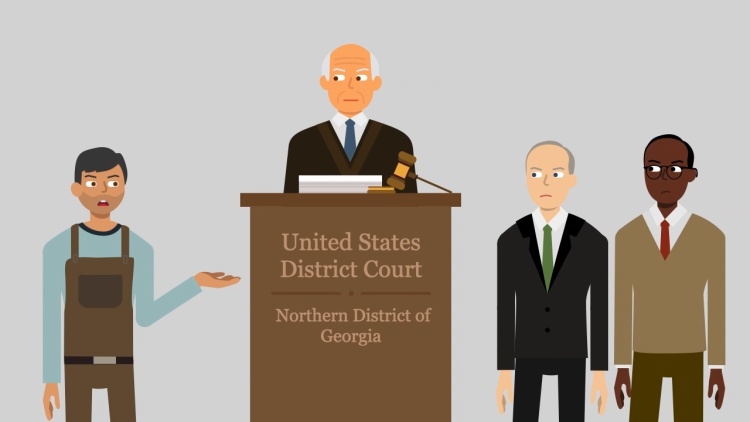O'Brien v. International Brotherhood of Electrical Workers
United States District Court for the Northern District of Georgia
443 F.Supp. 1182 (1977)
- Written by John Waller, JD
Facts
O’Brien (plaintiff) distributed information that was allegedly detrimental to his union, Local 613, an affiliate of the International Brotherhood of Electrical Workers (IBEW) (defendants). O’Brien was charged with violating the IBEW constitution, and, in previous proceedings, he was found guilty, suspended, and fined by the defendants. Subsequently, O’Brien brought this action against the defendants, alleging that the charges, trials, and disciplinary measures violated his rights of free speech and assembly under the Labor Management Reporting and Disclosure Act (LMRDA). During discovery, O’Brien served the defendants with a number of interrogatories. Interrogatory number 4 asked the defendants to explain how O’Brien’s communications violated his responsibility to the union and interfered with the defendants’ performance of their legal or contractual obligations. Interrogatory number 6 asked the defendants to explain why the free speech section of the LMRDA did not preclude the IBEW constitutional provisions that O’Brien’s communications violated. Local 613 objected to the interrogatories and did not answer. O’Brien made a motion to compel Local 613 to answer the interrogatories.
Rule of Law
Issue
Holding and Reasoning (Edenfield, J.)
What to do next…
Here's why 907,000 law students have relied on our case briefs:
- Written by law professors and practitioners, not other law students. 47,100 briefs, keyed to 996 casebooks. Top-notch customer support.
- The right amount of information, includes the facts, issues, rule of law, holding and reasoning, and any concurrences and dissents.
- Access in your classes, works on your mobile and tablet. Massive library of related video lessons and high quality multiple-choice questions.
- Easy to use, uniform format for every case brief. Written in plain English, not in legalese. Our briefs summarize and simplify; they don’t just repeat the court’s language.







